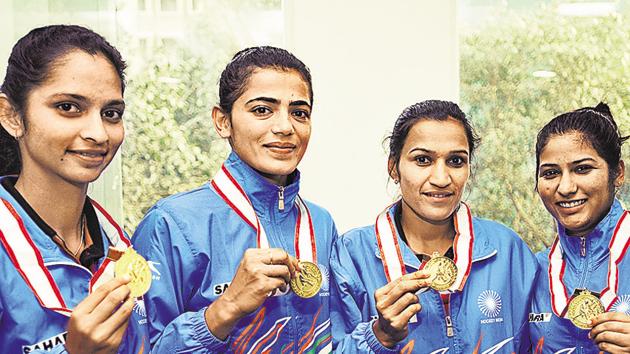Tech, infrastructure transformed chess and other sports, writes Viswanathan Anand
Technology has helped chess infrastructure and access to foreign coaches have transformed many other sports in the country.
In 1987, India was still trying hard to get its first elusive Grandmaster title in chess. I had tried thrice, but each time narrowly missed the norm. At that point, an elderly English gentleman mentioned to me: “Someday you will make your Grandmaster title, without you realising it.”

In sports, magic happens. It is that moment when things fall into place that create performances worthy of a champion.
Many years later, when I did win my first World Championship in 2000, I remembered his advice and how true it will always hold. India has always had its fair share of sporting greats in games other than cricket. We weren’t a large enough number. Our achievements were largely singular and more to do with a person’s unique talent and relentless ambition.
But always, a movement starts very small. Many of us, in our individual disciplines, such as Geet Sethi or Prakash Padukone or Leander Peas, worked hard to get due recognition for our sports simply by giving our best.
In chess, we have fifty Grandmasters. I play in many events where I am not the only Indian to be invited. The 2018 Tata Chess event in Wijk aan Zee in the Netherlands will see a record participation of four Indians.
This is almost a global acceptance of Indian chess.
Adhiban Baskaran played such interesting chess in the event last year that he made it to the cover of New In Chess, a prestigious chess magazine. Vidit Gujrati had a dream run, finishing very well at an event in Isle of Man. Among women we have Harika Dronavalli, who, I would think is very close to winning the World Championship title. She has definitely gained a lot of maturity in her play.
The biggest change in chess preparation has come from technology. Computers have made chess more accessible and taken it to wider audiences. The use of the internet to watch, store and analyse chess games have levelled the field. I work with ‘seconds’ from across the globe, we exchange ideas across different time zones. This has helped the Indian players a lot in getting exposure to playing and working with foreign players. Ideas that were once locked away are now exchanged freely. Ideas are right there to find and most professional players have a better playing prowess than say 10 years ago.
If technology has helped chess, infrastructure and access to foreign coaches have definitely helped many sports in India. We at the Olympic Gold Quest work in matching talent to training very efficiently. We use the best amalgam of corporate and sport experience to get talent spotted and trained. Definitely, India has a long way to go in getting the best infrastructure. But we have been able to work with young athletes and give them valuable exposure.
Often, the federation may be the stumbling block with conflicting interests.
So it is important that when we talk of a sporting culture, we should also assimilate a sporting climate where we allow talent to thrive rather than subject them to endless paperwork and recommendation lists.
There is achievement happening in many sports. Badminton has been a big new sport for India. Shooting is another discipline where we hold a lot of promise. In boxing and weightlifting, too, we have a lot of talent. As we talk about Tokyo 2020, we hope that the magical moment we talk about happens and we achieve a very good double digit medals tally.
Yes, we are a sporting nation. Ask any young sportsperson what their dream is. They will tell you that they want to be world champions. And what does that mean? Donning your national colours and standing proud when your anthem is played.
Because, only at that moment will you realise that every drop of sweat and tear was worth it, not only for you but the people who come after you. For me that was always my dream and I am happy I got to live it.





